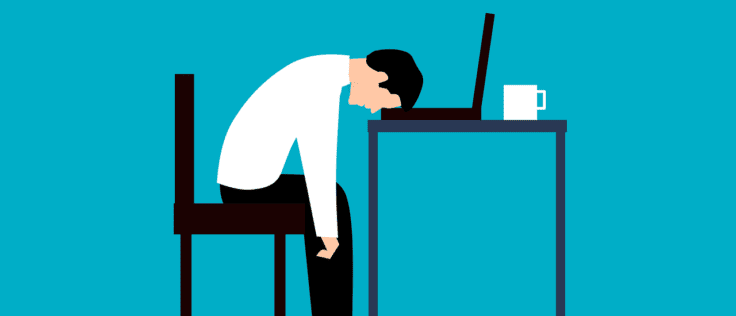There is a lot to love about the modern workplace; an abundance of technology, interesting projects, remote and hybrid working options, and a seemingly endless amount of innovation going on. The modern workplace really is an exciting place to be for a professional. But, it can also be busy, pressured and stressful at times. This has led to a growing number of people having to balance a busy career with their mental health, which isn’t always easy.
The Challenge of Maintaining Your Mental Health at Work
Regardless of sector or industry, the pursuit of success often goes hand in hand with the challenge of maintaining your mental health. As someone who suffers with complex PTSD, I know that managing mental health is an ongoing project. It’s not something that you do once a month, or even once a week. It’s important to regularly check in with yourself, even during stressful and busy times in your career.
As ambitious entrepreneurs push themselves to succeed, things can start to take a toll on their mental health. It’s not easy to find a balance between a demanding career and mental wellbeing, and doing so can be challenging. The constant pressure to perform, meet deadlines and exceed expectations can start to have an effect on your mental health. If you don’t find a way to balance things, you could find that both your career and mental health start to suffer.
Recognising the Signs of Burnout and Fostering Resilience
The first step to managing mental health while navigating a busy career is to recognise the signs of stress and burnout. A lot of entrepreneurs think that fatigue, decreased enthusiasm and struggling to focus are all part of being a hardworking professional. They are actually some of the first signs that you are burning out at work, and they shouldn’t be ignored.
Coping with stress and preventing burnout as much as possible is vital for maintaining your mental health at as an entrepreneur. Mindfulness and meditation can make a big difference, as can taking regular breaks and making the most of your annual leave. Creating a good balance between your work life and personal life will help you to recharge. If you are struggling, work on building your resilience. This involves cultivating a growth mindset, learning from failures and building a strong support network. If you are faced with stress and pressure at work, resilience will help you to stay strong mentally.
Strategies for Finding a Good Work-Life Balance
Often, mental health and work are often spoken about as being part of a work-life balance. This means finding a balance between what your professional life requires of you, whilst also finding the time to relax, unwind and enjoy time away from the office. Achieving a good work-life balance isn’t easy. It’s something that a lot of people continue to struggle with. Once you think you have found the balance, something could change and everything will be thrown into disarray. It’s an ongoing task. But, it’s one that’s vital to your happiness both at work and at home.
Time Management – Efficient time management reduces stress and enhances productivity. Prioritise tasks, delegate tasks when possible and avoid multitasking. It’s a lot easier to feel relaxed at work when you have everything in order, and when you’re not scrambling around trying to meet a deadline.
Physical Wellbeing – Regular exercise, eating a balanced diet and regularly getting a good night’s sleep all contribute to our mental health. If you are lacking any of these, you might start to notice it impacting your mood or concentration.
Leisure and Fun – You shouldn’t be all work and no play. Though this might put you ahead professionally for a short amount of time, it’s not sustainable. Eventually, your mental wellbeing will start to suffer. Make time for hobbies, interests and fun activities outside of work. You need to have an outlet for creativity and relaxation, even if that’s simply relaxing in front of the television or hanging out with friends.
Learn to Say No – My biggest piece of advice when it comes to managing mental health and a busy career is to learn to say no. Understand your limitations as an entrepreneur and learn to say no to additional tasks when your plate is already full. It’s better to say no to something, than to say yes and risk delivering poor results or your mental health suffering as a result.
I’m not going to say that balancing your mental health and your career is easy. I’m also not going to say that it happens on it’s own, overnight or without you putting the time in. But, I will say that hard work pays off. You are much more likely to enjoy everything that comes with being a professional entrepreneur when your busy career is balanced with your mental health and wellbeing.
What are your tips for navigating this balancing act?






